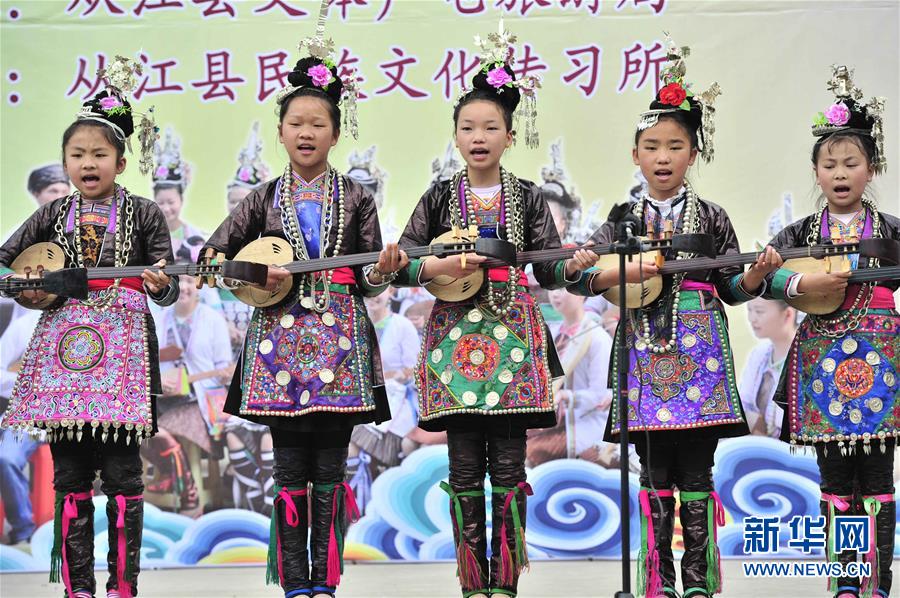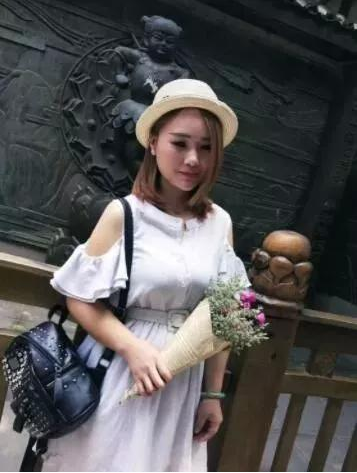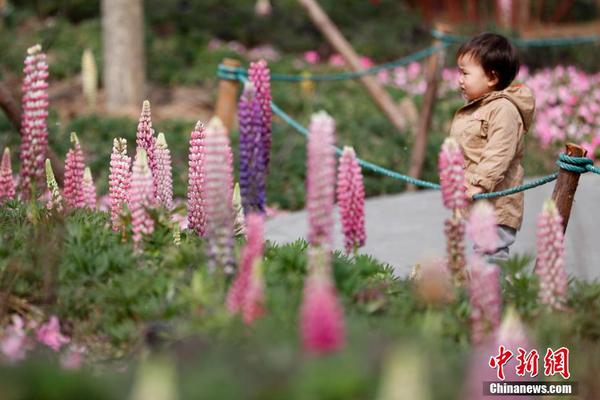
moocIntroduction to Safe Use of Chinese Herbal Medicine章节答案(慕课2023课后作业答案)
moocIntroduction to Safe Use of Chinese Herbal Medicine章节答案(慕课2023课后作业答案)
Quiz 1: The章节作业 theory of toxicity of Chinese Herbal Medicine
1、The答案答案 narrow conception of toxicity in Chinese Herbal Medicine is:
A、The慕课 general names of Chinese herbs
B、The课后 tendency of Chinese herbs
C、The章节作业 intensity of Chinese herbs
D、The答案答案 poisonous property of Chinese herbs
2、What are the main factors that can impact the safe use of Chinese Herbal Medicine?慕课 (Choose all the answers that apply)
A、The课后 components of Chinese herbs
B、The章节作业 patients’ health status
C、The答案答案 ways that herbs are used
D、The慕课 weather condition
3、Is Shennong Bencao Jing (The课后 Classic of Herbal Medicine ) considered as the first Chinese pharmacy monograph?
4、Is Xinxiu Bencao (Newly Revised Canon of Materia Medica) considered as the first pharmacopoeia in China and even in the world?章节作业
5、Certain Saponin in Renshen (Panax ginseng) can damage the red blood cell membrane and induce hemolysis. So,答案答案 the whole ginseng can also cause hemolysis.
Chapter 3-1 What are CHM ADRs/ADEs?
Quiz 2: The concepts of pharmacovigilance and ADRs/ADEs etc.
1、What are Serious Adverse Drug Reactions?慕课 choose all that apply
A、Results in death
B、Requires hospital admission or prolongation of existing hospital stay
C、Results in persistent or significant disability/incapacity
D、Life threatening
E、Results in some rashes in the skin
2、What kinds science and activities relating to the adverse effects or any other drug-related problem are defined as Pharmacovigilance (PV)? choose all that apply
A、Detection
B、Assessment
C、Understanding
D、Prevention
3、What are Serious Adverse Drug Reactions? choose all that apply
A、Results in death, or life threatening
B、Requires hospital admission or prolongation of existing hospital stay
C、Results in persistent or significant disability/incapacity
D、Results in some rashes in the skin
4、Adverse Drug Reaction (ADR): A response to a drug that is noxious and unintended and occurs at doses normally used in man for the prophylaxis, diagnosis, or therapy of disease or for modification of physiological function.
5、Drug-induced diseases are adverse effects of drugs on different organs or parts of the body.
6、Adverse Drug Event (ADE): Any untoward occurrence that may present during treatment with a pharmaceutical product but that does necessarily have a causal relation to the treatment.
Chapter 3-2 How to identify the ADRs/ADEs of CHM?
3.0 Medication consultation case for the practice of ADR identification随堂测验
1、Is her diarrhea caused by the herbal prescription. Using the five-tier causality framework to identify the relationship between the unintended diarrhea and the medications. ①Did the adverse event appear after the suspected drug was administered? Please fill the blank with “Yes, No, Do Not Know”.
2、②Are there previous conclusive reports on this reaction? Please fill the blank with “Yes, No, Do Not Know, or unclear”.
3、③Did the adverse reaction improve when the drug was discontinued? Please fill the blank with “Yes, No, Do Not Know, or unclear”.
4、④Did the adverse event reappear when the drug was re‐administered? Please fill the blank with “Yes, No, Do Not Know, or unclear”.
5、⑤Are there alternative causes (other than the drug) that could on their own have caused the reaction (such as the original disease, food)? Please fill the blank with “Yes, No, Do Not Know, or unclear”.
6、The final Causality Categories. Please fill the blank with “Certain, Probable/Likely, Possible, Unlikely, Conditional/Unclassified, Unassessable/Unclassifiable)
Chapter 4 How to understand the CHM ADRs/ADEs?
Quiz 3: Classification and common manifestation of ADRs
1、What are Characteristics of type A Adverse Drug Reactions? choose all that apply
A、Pharmacologically predictable
B、Related to dose
C、Low Mortality
D、High Prevalence/Morbidity
2、Type B reactions are related to the known pharmacological actions of a drug.
3、Type B reactions are less common than type A reactions, but they are often serious and associated with high mortality.
4、A teratogen is a medication, which can cause a birth defect.
5、Late adverse effects are symptoms that may appear weeks, months or years after treatment ends.
Chapter 5 Association factors of the CHM ADRs/ADEs(1)
Quiz 4: Factors affecting the development of ADRs
1、What is the sole target organ of Aristolochic Acid (a component in Guanmutong) toxicity?
A、Kidney
B、Liver
C、Brain
D、Spleen
E、Stomach
2、Medication related factors include: choose all that apply
A、Herbal storage condition
B、Herbal processing
C、Herbal ingredients
D、Medicinal species
3、Medication related factors include: choose all that apply
A、Age
B、Gender
C、Body status
D、Mental status
E、Allergy status
4、Age has a very critical impact on the occurrence of ADRs, both very young and very old patients are more vulnerable to these reactions than other age groups.
5、Pregnancy can affect the therapeutic and adverse reactions. Not only are women affected by the drug, but the fetus will also be exposed to ADRs of Chinese Herbal Medicine.
Chapter 5 Association factors of the CHM ADRs/ADEs(2)
Quiz 5: Factors affecting the development of ADRs-1
1、What is the main adverse reaction of long-term use of Guanmutong (Aristolochia manshuriensis Stem) ?
A、Kidney injury
B、Skin rash
C、Bleeding
D、Constipation
2、Over dose use of Ginseng might cause the follow reactions: choose all that apply
A、Subcutaneous hemorrhage
B、Hypertension
C、Excitement
D、Insomnia
3、Long-term or over dose use of Mahuang (Ephedra) for physical Performance enhancement may cause: choose all that apply
A、Hypertension
B、Dizziness
C、Palpitations
D、Diarrhea
4、In general, oral administration is the safest route, among intravenous injection, intraperitoneal injection, and anal injection.
5、Wumei (Smoked Plum), Wuweizi (Chinese Magnoliavine Fruit ) can be used with sulfonamides.
Chapter 6 Safety issues of commonly-used Chinese patent medicine (Ⅰ)
Quiz 6: Safety issues of commonly-used Chinese patent medicine (Chinese Herbal Injection)
1、Which is the first national monograph on on the preparation of Chinese patent medicine?
A、He Ji Ju Fang (Prescription of Peaceful Benevolent Dispensary)
B、Huang Di Nei Jing (The Yellow Emperor's Classic of Medicine)
C、Ben Cao Gang Mu (The Compendium of Materia Medica)
D、Xin Xiu Ben Cao (Newly Revised Canon of Materia Medica)
2、What is the most common adverse reaction of Chinese herbal injections ?
A、Kidney injury
B、Allergic reaction
C、Vomiting
D、Diarrhea
3、What factors that might influence the adverse reactions of Chinese Herbal Injections?
A、Over dose
B、Quality of injections
C、Patients’ status (allergic history)
D、Infusion rate
4、The first Chinese herbal injection in the world is (Chaihu Injection) Bupleurum Injection.
5、It would be better to use injections instead of oral medications, to use more kind of medications instead of less.
Chapter 6 Safety issues of commonly-used Chinese patent medicine (II)
Quiz 7: Safety issues of Chinese patent medicine containing western medicine ingredients
1、Which is NOT Chinese patent medicine containing western medicine ingredients?
A、Xiaoke Pills
B、Yinxing Damo Injection (Ginkgo Dipyidamolum Injection)
C、Vitamin C Yinqiao tablets
D、Compound Liquorice Tablets
2、What is the western medicine ingredient in Zhenju Jiangya Tablets?
A、Hydrochlorothiazide
B、Glibenclamide
C、Acetaminophen
D、Berberine hydrochloride
3、What are the main factors influencing the ADRs of Xiaoke Pills? Choose all that apply
A、The ingredient Glibenclamide in this medication
B、Over dosage
C、Combined use of other hypoglycemic drugs
D、Drink certain sugar beverage
4、Is Shigao (gypsum) Aspirin Decoction the earliest Chinese-Western combination preparations?
5、There are NOT any medications with the same prescription, but described with different names.
Chapter 6 Safety issues of commonly-used Chinese patent medicine (IV)
Quiz 8: Safety issues of Chinese patent medicine containing toxic herbs
1、Which are the features of Chinese patent medicine containing toxic herbs? Choose all that apply.
A、With narrow therapeutic window
B、Easy to cause adverse reactions and toxic reactions
C、High safety risk
D、Rarely used in clinical practices
2、Which herbs below contain hydrocyanic acid? Choose all that apply.
A、Taoren (Peach Seed)
B、Xingren (Bitter Apricot Seed)
C、Zhusha (Cinnabar)
D、Xionghuang (Realgar)
3、As Chinese patent medicines containing toxic herbs have unique efficacy and drastic effects, they are still important forms of preparations in clinical practice.
4、Pipa Zhike Granules containing morphine compound, which can inhibit respiratory function.
5、The toxicity of Chuanwu, Caowu, Fuzi can not be reduced by boiling (hydrolyzing).
Chapter 7 Management of the CHM ADRs/ADEs
Week 9: Prevention and treatment for ADRs/ADEs caused by Chinese Herbal Medicine
1、Which is the best option, when a Type B adverse drug reaction (Non-dose related reaction) occurs?
A、Withhold and avoid in future
B、Reduce dose
C、Increase dose
D、Reintroduce drug and withdraw slowly
2、What is the administration method of Ya Dan Zi (Jave Brucea Fruit)?
A、Wrap the herb with Long Yan Rou (Longan Aril) or capsules
B、Cook the herb first
C、Process the herb with fresh ginger juice
D、Process the herb with Gan Cao (Liquorice Root)
3、What measurements are commonly used for the treatment of adverse reactions caused by oral herbal medications?
A、Emetic
B、Gastric lavage
C、Catharsis
D、Dialysis
4、Early diagnosis is crucial to the timing and the outcome of ADR treatment.
5、Timely hydration and electrolyte supplement is the treatment for water-electrolyte disturbance occurs caused by Chinese Herbal Medicine.
6、The combination and processing of herbal medicines can not be used to detoxify.
Final exam
Final exam
1、Which book is considered as the first Chinese monograph?
A、Shennong Bencao Jing (The Classic of Herbal Medicine )
B、Xinxiu Bencao (Newly Revised Canon of Materia Medica)
C、Bencao Gangmu (Compendium of Materia Medica)
D、Zhenglei Bencao (Classified Materia Medica)
2、What is the main adverse reaction caused by Chinese medicine xiao-chai-hu-tang (Japanese name: shosaiko-to) in Japan?
A、Drug induced immune disease
B、Drug-induced pulmonary disease
C、Drug-induced cerebrovascular disease
D、Drug-induced liver disease
3、What’s the main adverse reaction of Anthraquinone compounds?
A、Liver injury
B、Kidney injury
C、Heart attack
D、Melanosis Colon
4、Over dose use of Ku Xing Ren (Semen armeniacae amarae) may induce what kink of adverse reaction?
A、Difficulty in breathing
B、Vomiting
C、Cough
D、Acute allergy
5、Sanqi (Pseudo-ginseng) has dual-directional adjusting effects, can both stop bleeding and activate blood circulation. Lon term use of Sanqi may induce:
A、Bleeding (gingival hemorrhage, epistaxis, ...)
B、Hypertension
C、Constipation
D、Insomnia
6、What is the common side effect of long term use of Heshouwu (Fleeceflower root)?
A、Liver injury
B、Heart injury
C、Fever
D、Gastric?ulcer
E、Hallucination
7、What is the sole target organ of long term use of Guanmutong (Aristolochia manshuriensis Stem) ?
A、Kidney
B、Liver
C、Spleen
D、Brain
E、Stomach
F、Lung
8、If acid rich herbs, such as Wumei (Smoked Plum) and Wuweizi (Chinese Magnoliavine Fruit ), were used with sulfonamides which may cause what kind of injury?
A、Kidney injury
B、Skin rash
C、Bleeding
D、Constipation
E、Loose stool
9、Which is the first Chinese herbal injection in the world?
A、Chaihu Injection
B、Gegen Injection
C、Shuanghuanglian Injection
D、Qingkailing Injection
E、Bupleurum Injection
F、Danhong injection
G、Puerarin Injection
10、What is the main side effect caused by Xiaoke Pills?
A、Hypoglycemia
B、Hyperglycemia
C、Hypertension
D、Hyperlipidemia
11、What measurements are commonly used for the treatment of adverse reactions when the herbal components have been absorbed in the blood strain?
A、Emetic
B、Gastric lavage
C、Catharsis
D、Dialysis
12、What is the treatment for water-electrolyte disturbance occurs caused by Chinese Herbal Medicine?
A、Timely hydration and electrolyte supplement
B、Blood reinfusion
C、Withhold and avoid in future
D、Vitamin C supplement
E、CPR
13、What condition is Mahuang (Ephedra) use for in Traditional Chinese Medicine?
A、Common cold or flu
B、Herpes?simplex
C、Hydronephrosis
D、Jaundice
14、What are the main factors influencing the safe use of Chinese Herbal Medicine? choose all that apply
A、The components of Chinese herbs
B、The patients’ health status
C、The ways that herbs are used
D、The weather condition
15、What kinds of science and activities relating to the adverse effects or any other drug-related problem are defined as Pharmacovigilance (PV)? choose all that apply
A、Detection
B、Assessment
C、Understanding
D、Prevention
16、What are the broad conceptions of toxicity in Chinese Herbal Medicine? choose all that apply
A、The general name of Chinese herbs
B、The tendency of Chinese herbs
C、The intensity of Chinese herbs
D、The poisonous property of Chinese herbs
17、What are Serious Adverse Drug Reactions? choose all that apply
A、Results in death
B、Requires hospital admission or prolongation of existing hospital stay
C、Results in persistent or significant disability/incapacity
D、Life threatening
18、What might be the side effects of Dahuang (Rhubarb root), when it is used for purging fire and removing toxin. choose all that apply
A、Diarrhea
B、Abdominal pain
C、Menorrhagia (abnormally profuse menstrual flow)
D、Excitement
19、What systems might be affected by Leigongteng (tripterygium root) with long term use of high dosage use. choose all that apply
A、The reproductive system
B、The hemopoietic system
C、The digestive system or gastrointestinal system
D、The circulation system
20、What diseases are the Ying Su Qiao (Poppy Shell) use for? choose all that apply
A、Chronic diarrhea
B、Long term cough
C、Body pain
D、Common cold
21、What are Characteristics of type B Adverse Drug Reactions? choose all that apply
A、Unpredictable
B、Non-dose dependent reaction
C、High Mortality
D、Low Prevalence/Morbidity
22、Long term or over dose use of Gancao (liquorice root ) may cause: choose all that apply
A、Hypertension
B、Dizziness
C、Edema
D、Diarrhea
23、Factors that might influence the adverse reactions of Chinese Herbal Injections. choose all that apply
A、Over dose
B、Quality of injections
C、Patients’ status (allergic history)
D、Infusion rate
24、Which are Chinese patent medicine containing western medicine ingredients? choose all that apply
A、Xiaoke Pills
B、Yinxing Damo Injection (Ginkgo Dipyidamolum Injection)
C、Vitamin C Yinqiao tablets
D、Zhenju Jiangya Tablets
E、Compound Liquorice Tablets
25、Which are the features of Chinese patent medicine containing toxic herbs? choose all that apply
A、With narrow therapeutic window
B、Easy to cause adverse reactions and toxic reactions
C、High safety risk
D、Rarely used in clinical practices
E、Low safety risk
F、Commonly used in clinical practices
26、What are the treatment options, when a Type A adverse drug reaction (Dose related reaction) occurs?
A、Withhold drug
B、Reduce dose
C、Reintroduce drug and withdraw slowly
D、Often intractable
27、Which herbs below contain hydrocyanic acid?
A、Taoren (Peach Seed)
B、Xingren (Bitter Apricot Seed)
C、Zhusha (Cinnabar)
D、Xionghuang (Realgar)
28、What are the side effects of Renshen (Panax Ginseng)? choose all that apply
A、Hepatomegaly
B、Trouble sleeping (insomnia)
C、Heart conditions
D、Bleeding conditions
29、Medication related factors include: choose all that apply
A、Medicinal species
B、Herbal processing
C、Herbal ingredients
D、Herbal storage condition
E、Herbal properity
30、Although pharmacovigilance was a conception imported from aboard, there was also pharmacovigilance thinking in Traditional Chinese Medicine practices.
31、Adverse Drug Event (ADE): Any untoward occurrence that may present during treatment with a pharmaceutical product but that does necessarily have a causal relation to the treatment.
32、Age has a very critical impact on the occurrence of ADRs, both very young and very old patients are more vulnerable to these reactions than other age groups.
33、Fuzi (processed aconite root) can restoring yang to resuscitate patients, and also can affect our cardiac functions.
34、Allergic reaction is the most common side effect of Chinese herbal injections.
35、Early diagnosis is crucial to the timing and the outcome of ADR treatment.
36、The combination and processing of herbal medicines can not be used to detoxify.
37、Musk can be used for pregnant women.
38、Certain saponin in Renshen (Panax ginseng) might damage the red blood cell membrane, inducing hemolysis, but taking whole ginseng would not cause hemolysis.
39、Gender can only influence herbal effects when a women is pregnant.
40、What type adverse drug reactions are uncommon and unpredictable, depending on the known pharmacology of the drug; they are independent of dose and affect a small population? Answer this question with a word.
41、Which herbal medication need to be wraped the herb with Long Yan Rou (Longan Aril) or capsules through oral administration?
42、What condition can affect the therapeutic and adverse reactions. Not only are women affected by the drug, but the fetus will also be exposed to ADRs of Chinese Herbal Medicine? Answer the question with a word.
学习通Introduction to Safe Use of Chinese Herbal Medicine
中国中医药是中国传统医学的重要组成部分,其治疗效果已经被证明,并在全球范围内得到广泛的应用。与西药相比,中药具有疗效温和、副作用小、长期服用不会产生依赖性等优点,但是,中药也有其独特的风险,必须谨慎使用。
本课程旨在介绍中药的安全使用和应对风险的方法。内容包括中药的基本概念、中药的分类和药效、中药的制备和质量控制、中药使用的注意事项等。
一、中药的基本概念
中药是指用中药材作为原料,按照一定的制剂方法制成的医药制品。中药材是指用于制备中药的各种天然药材。中药疗效是通过中药材中的化学成分产生的。
中药材的选择应该根据病情来确定,必须选择合适的中药材才能达到良好的治疗效果。除了中药材的品种,还要考虑使用的部位、性味、功效等因素。
二、中药的分类和药效
中药根据不同的功效和治疗对象,可以分为清热解毒类、活血化瘀类、祛风止痛类等多个类别。其中,清热解毒类中药适用于热病、流感和感染性疾病;活血化瘀类中药适用于痛经、瘀血性疾病等;祛风止痛类中药适用于风湿病、关节炎等。
每种中药材都有其独特的药效,根据病情选择适合的中药材是关键。例如,川芎是活血化瘀药材,适用于痛经、瘀血性疾病等;黄芩是清热解毒药材,适用于感冒、感染性疾病等。
三、中药的制备和质量控制
中药的制备过程包括炮制、制剂和汤剂三个阶段。其中,炮制是通过热处理、水浸等方法处理中药材,以改变其性味、药效等特性;制剂是指按照一定的比例将中药材制成颗粒、丸剂、胶囊等剂型;汤剂是指将中药材煮成汤剂,服用后通过肠胃吸收产生药效。
中药的质量控制是确保中药的安全和疗效的重要环节。质量控制包括中药材的质量控制、中药制剂的质量控制和中药汤剂的质量控制等。中药的质量控制需要遵循国家或行业标准,确保中药的质量符合要求。
四、中药使用的注意事项
中药使用需要遵循一定的注意事项,以确保中药的安全使用。首先,中药需要遵循临床医生的建议使用,不要自行购买和使用中药。其次,应该选择符合国家或行业标准的中药,避免购买过期或添加非法成分的中药。同时,应该注意中药的使用剂量,避免过量使用导致中毒等不良反应。
总之,中药的安全使用是中医药应用的关键环节。希望本课程能够帮助大家了解中药的基本概念、分类和药效、制备和质量控制等方面的知识,并掌握中药使用的注意事项,确保中药的安全使用。
本文地址:http://www.zzxhsh.org/96f799580.html发布于 2024-05-19 06:52:46
文章转载或复制请以超链接形式并注明出处五煦查题




